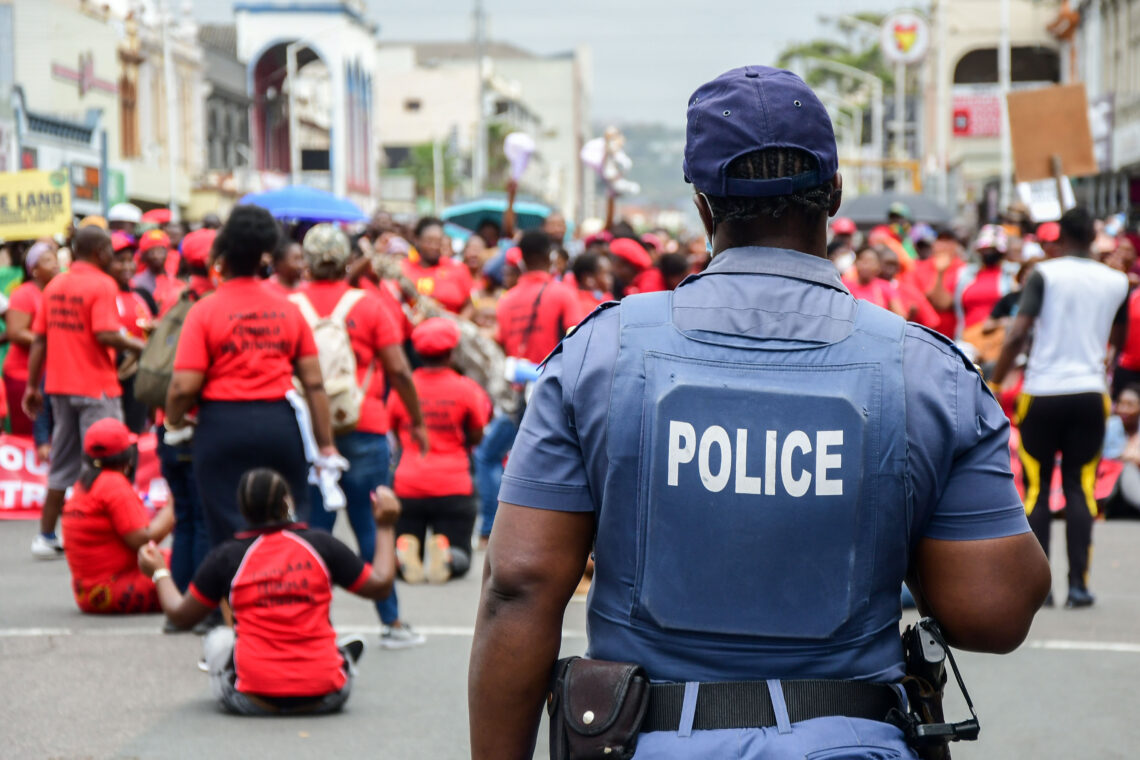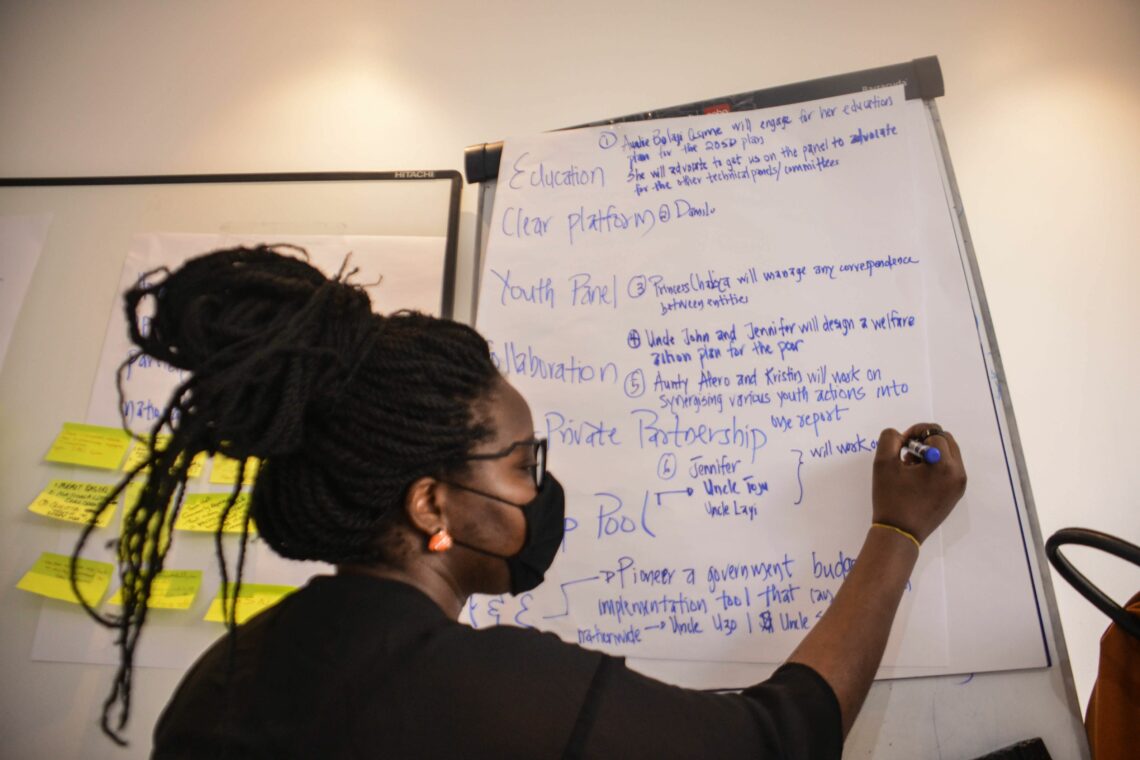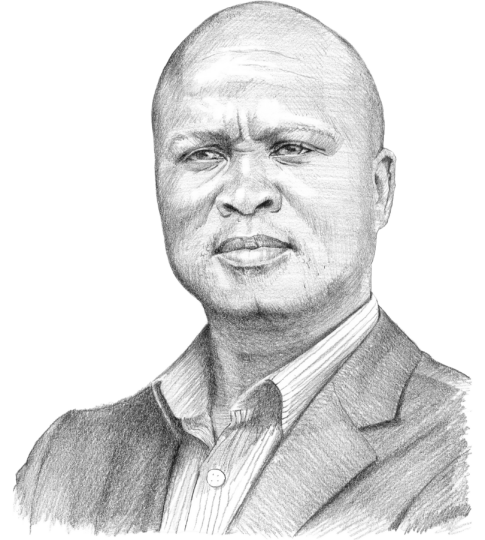Scenarios for law enforcement in Africa
African communities often have painful memories of police repression dating back to the colonial era. The recent lockdowns have reopened old wounds. With several elections to be held in the near future, incidents involving police violence could increase across Africa.

In a nutshell
- Covid-19 has momentarily halted African politics
- Once activity resumes, tensions could rise rapidly
- Clashes between police and civilians may intensify
Policing has recently come under the spotlight because of concerns over human rights, civil liberties and the broader health of democracy. In addition to the public outcry against police behavior in the United States, the African region also saw similar protests, notably recent calls for disbanding Nigeria’s Special Anti-Robbery Squad (SARS). The Nigerian protests made global headlines – often with comparisons to the Black Lives Matter movement – but the challenge of establishing humane and transparent law enforcement faces several other post-conflict African societies as well.
The African continent has a long history of police brutality stemming from repressive colonial regimes. Illegitimate rulers entrenched their hold on power and control over communities through the police and sometimes, even the military. The main challenge for these African societies will be to transform the police from a “force” to a “service.” This shift would entail operational accountability and effectiveness in implementing the broader mandate of ensuring public safety. With this goal in mind, several states on the continent have already adopted the protocol and guidelines on policing produced by the United Nations Office on Drugs and Crime.
The shift toward democracy has not resulted in a reform of policing culture.
In most African countries, the shift toward democracy has not resulted in a reform of policing culture. Accountability is lacking and relations with civilians remain fraught with tension.
Culture of policing
Many African countries have recently encountered police abuse or failings in one form or another. The formation of specialized police and prosecution units to combat high-level crime and corruption have also posed additional issues.
Zimbabwe. There is a persistent pattern of police acting outside the law, brutalizing and intimidating civilians – especially opposition voices and journalists. Earlier this year, President Emmerson Mnangagwa came under pressure because of incidents of police brutality. Throughout Africa, these issues are often highlighted in the lead up to elections and in their aftermath.
Swaziland. Police brutality against political activists frequently makes headlines. The general opinion of the population is that civil liberties are not respected by law enforcement, and that accountability is severely lacking.
Lockdowns brought back painful memories of the brutal policing African societies experienced in past decades.
Kenya and Uganda. Reports of police violence against activists and members of opposition parties are also common. In the contentious 2017 elections in Kenya, police were implicated in politically-motivated killings. Observers recommend the creation of a properly constituted oversight body. In Uganda, most commentators agree that law enforcement is used to quell political dissent, including arresting opposition politicians ahead of elections.
South Africa and Botswana. The two countries highlight the complexity of policing a democratic society amid high historical tensions. Botswana has inherited a policing ideology similar to that of South Africa, one that dates back to the principle of “maintaining order” under colonial rule. Botswana and South African police forces include a specialized police unit for serious crimes, an anti-corruption investigative body to deal with high-level corruption, as well as an independent oversight body to investigate misconduct. Police in South Africa are also accountable to parliament.
Reports of heavy-handed intervention or extrajudicial activities are common, and the oversight bodies in place have yet to become fully accountable.

In South Africa, for example, there have been protracted court battles over the constitutional provision establishing the independence of the oversight organization. These followed complaints by civil society organizations that the executive is interfering with the independence of the police and the watchdog body, the Independent Police Investigative Directorate (IPID). Appointing police and oversight authorities is a controversial process in both countries, and anti-corruption and investigative organizations have been accused of leaving high-level cases unattended. Whether perception or reality, this has implications on the integrity of law enforcement in the eyes of the citizens.
Scenarios
For most postindependence African societies, the Covid-19 lockdowns brought back painful memories of the brutal policing they experienced in past decades. States of emergency on the continent are generally implemented through security forces, predominantly the police.
Several practices used during the pandemic will need to be rolled back to ensure policing is conducted in line with human rights and civil liberties. Africa seems to have thus far been spared the worst of the coronavirus, with many countries reporting relatively low rates of infection and mortality. However, friction between law enforcement and civilians have been exacerbated by the situation. The African experience is probably only comparable to South America, where widespread police brutality coexists with high crime levels.
The pandemic will also exacerbate social tensions in impoverished communities. High youth unemployment will certainly result in rising crime, as is currently happening in South Africa. The natural response for many governments, when confronted with increasing criminality, is to strengthen specialized police units to “smoke out” wrongdoers in society. This strategy will likely worsen the living conditions in vulnerable communities.
The public’s frustration with crime and corruption may be used as an excuse by governments to create additional units, like Nigeria’s SARS. But this response will backfire because these forces often end up committing crimes of their own for political ends. Their very existence reinforces the perception of impunity for law enforcement.
The degrading socioeconomic situation will lead to more crime in certain areas. In South Africa, for example, this will mean more street protests over service delivery-related matters. Incidents like the Marikana massacre, in which 34 South African mine workers were killed by police officers, could be repeated.
Since political activities were mostly suspended during the 2020 lockdowns, many African states will hold elections only after the health crisis is under control. At that point, political resentment could rise sharply throughout the continent. After the months-long ban on public activities, communities will be anxious to express political views, including their eventual displeasure with how the pandemic was managed. Governments will be tempted to use force to keep a lid on tensions that were subdued during the lockdown.
Law enforcement will remain a contentious matter in African societies, and clashes between police and civilians will increase in frequency – a trend visible in Uganda already. This will further constrain civil liberties. In Africa, the police remain the single most powerful institution with the potential to stifle political dissent. Without proper regulation, it will hinder the creation of an open and fair political environment.








